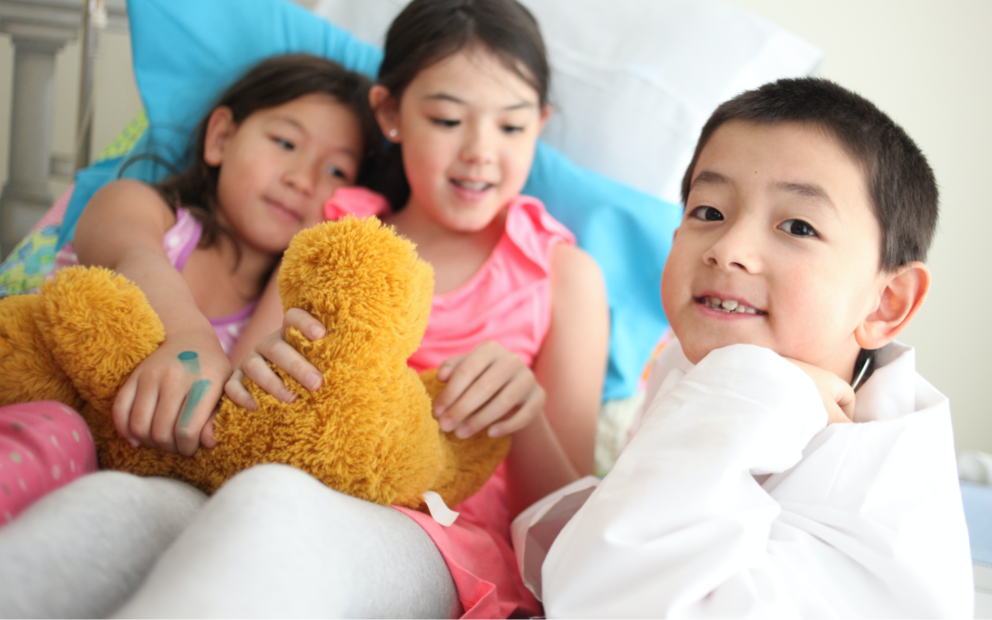At Dougy Center for Grieving Children & Families our peer support groups begin the same way every time. Each person is invited to say their name, age, who died in their life, and how that person died. I’m Jana, I’m 43, when I was 15 my grandmother was hit and killed by a subway train and we never found out if it was an accident, suicide, or if someone pushed her. I’m Caden, I’m 7, my dad died of cancer. I’m Amber, I’m 12, my brother hung himself. I’m Sadie, I’m 4, and my mommy died because she was really sick. In the everyday world, when we tell people someone in our life has died, the conversation usually takes an awkward turn. Even young children quickly learn to keep grief to themselves because it makes other people uncomfortable. In our peer support groups, we work to change this habitual silencing of grief.
One way we do this is to create an environment of acceptance rather than sympathy. Almost every child we’ve met in this work is attuned to what they call the “you poor thing” tone of voice. They brace for gasps, platitudes, and people telling them how they should and shouldn’t feel. When met with these reactions and expectations, grievers can internalize them as evidence there is something wrong with them and how they are grieving. Our role is also to help children and teens recognize they have a right to feel and express their grief. We support them in identifying and asking for what they need - and don’t need - from from family, friends, and school personnel.
One of the most helpful things we can do is show grieving children and teens we are not afraid of their story and that we can withstand the intensity of the emotions, thoughts, physical reactions, and questions they carry. To do this effectively, it’s important to connect with our own grief experiences. By exploring these, we can identify our often unspoken assumptions and anxiety about grief. This also enables us to better maintain a mindset of curiosity rather than reactivity when working with grieving children and teens.
Another area where we advocate for children and teens is encouraging adults to be honest with them about the death. When adults try to protect children from the truth, children and teens often fill in the gaps with guesses that can lead to confusion, pain, guilt, and shame. Dougy Center’s staff works with adults to help them find the right words to say. In general, it’s good to use clear, concrete language, “Daddy’s heart stopped working,” “Mommy took too many pills,” and let children’s questions guide what else to share. If children and teens trust they can ask questions and receive truthful responses, they are more likely to reach out to the adults in their lives for support.
In addition to honesty, adults can also advocate for children and teens to be able to grieve in their own way. Grievers of all ages tend to be hard on themselves, whether for crying, not crying, being strong, being a mess, thinking about the person, or not thinking about the person. Grief is as unique as we are and even in the same family, we may grieve very differently. It’s helpful to let children and adults know that there really is no right or wrong way to grieve, but the belief that there is a right way can lead to misunderstanding and disappointment. We support families to acknowledge, celebrate, and encourage individual ways of expressing grief.
When we delve into our personal grief experiences, we may discover assumptions about how people should and shouldn’t grieve. It is also helpful to engage in a similar process with a larger societal lens, taking into account how cultural, economic, and structural differences form and influence how grief is defined and recognized. Here are some questions we are continually examining at Dougy Center: Who gets permission to grieve in our society and who doesn’t? Who is seen as grieving well? Who is seen as grieving badly? Who has access to grief support (groups, counseling, family & friends)? Who does and doesn’t have the resources and support to care for family members who are dying or for themselves and others when someone has died? These questions don’t have simple or easy answers, but there is power in keeping them close at hand as we work to support children, teens, adults, and communities in grief.
